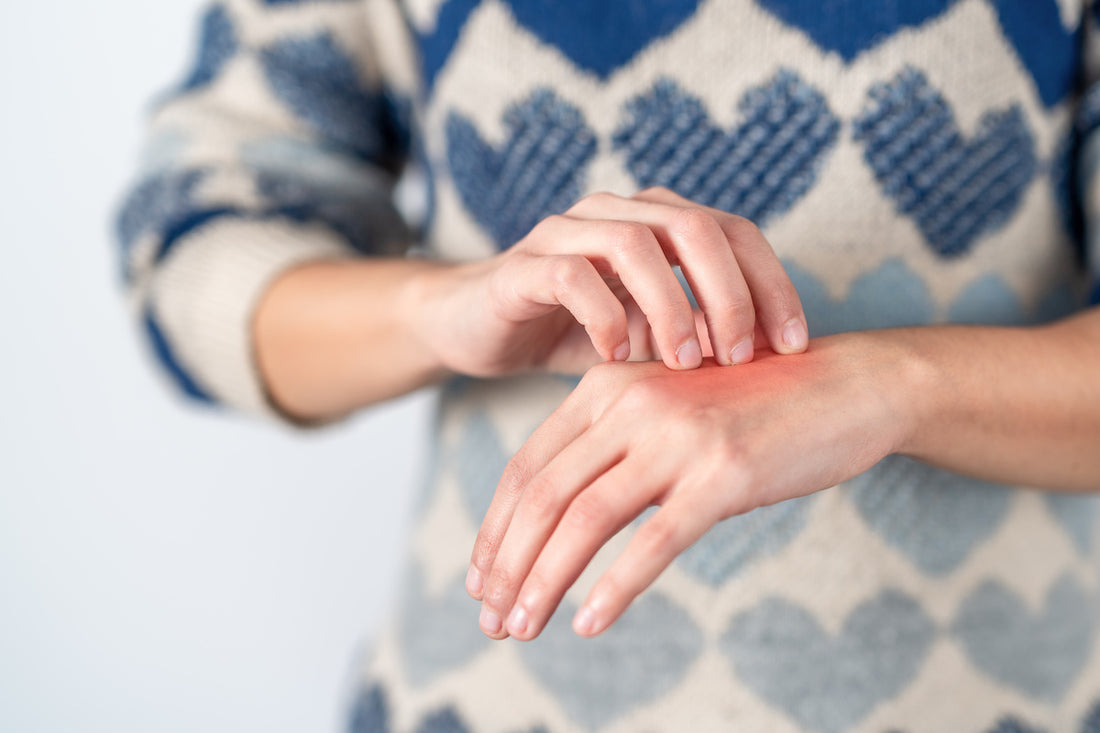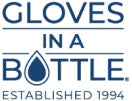
Eczema on Hands: Why Me?
Share
Are you trying to hide your hands because of red, irritated and unsightly looking skin? If the skin on your hands is dry, itchy and inflamed, it’s most likely due to eczema. If you’re hiding away from your friends because of your skin condition, you are not alone! One third to one half of adults with eczema avoid going out and being social because of the way their skin looks.1 We don’t want you to be one of those people so let’s talk about eczema on hands and how to fight it so that you can get back to the party!
I’m pretty sure you didn’t ask for eczema on your Christmas wish list so where is it coming from? What causes eczema on your hands? The fact that eczema can be caused by many different things can sometimes make it harder to pinpoint exactly why it’s happening. Some forms of eczema are inherited (thanks mom and dad!) while others are triggered by outside factors. There are lots of different types of eczema that can cause slightly different skin reactions but did you know that there is such a thing as hand eczema?2 I bet your hands feel really special now.
If you have eczema on your hands but nowhere else, chances are you’re a lucky member of the hand eczema club! It’s probably not a club you want to be a part of so let's figure out how you can cancel your subscription.
Eczema on the hands is caused by the skin coming in contact with chemicals and irritants - usually on a regular basis. The most obvious reason this can happen is highly likely due to your job. What do you do for a living? Do your hands come in contact with things that could be irritating your skin like chemicals, constant hand washing, extreme temperatures or even wearing gloves? People who are cleaners, hairdressers, builders, nurses or artists, for example, are surrounded by substances that could be irritating their skin. With hand eczema you end up with dry, red, itchy and flaky skin. If it’s a bad case, you can even end up with cracks and blisters. It’s no wonder you don’t want people to see your skin looking like this. I get why going out and being social isn’t on your priority list.
Let’s get to the good news and talk about how you can get rid of that eczema on your hands. The first thing you need to do is quit your job. (Just kidding!)
There are actually two things you need to do. The first one is to protect your skin from being irritated any further and the second is to help heal the skin that is already damaged. The even better news is that you can do both of these things in one easy step - apply a shielding lotion. Using a shielding lotion like Gloves In A Bottle forms an invisible protective shield with the top layer of your skin that helps to keep any irritants out that could be drying out and irritating your skin. While it’s doing this, the lotion also keeps your natural moisture and hydration inside the skin where it is needed so that it can start to heal the dry and inflamed skin.
If you’re worried about washing your hands, not to worry; Gloves In A Bottle actually bonds with the top layer of your skin so won’t wash off and only comes off naturally as your skin sheds. This makes it perfect for you if you think washing your hands might be the culprit of your hand eczema.
Try to figure out what exactly is causing your skin irritation so you can avoid direct contact with it, when possible. If you work around harsh chemicals, wearing protective gloves definitely gives you another reliable source of protection but because wearing gloves alone can also irritate or cause your eczema (aaaarg!), putting on shielding lotion before you put on the gloves can protect your skin from that too. Gloves In A Bottle is like your hands’ own personal superhero. Except without the cape.
Now that you know you can actively fight eczema on hands (without changing careers!) by lathering on your superhero shielding lotion, start protecting and healing your skin and get ready to be social again. Your hands will be the life of the party!
1 https://nationaleczema.org/research/eczema-facts/
2 https://www.healthline.com/health/types-of-eczema#dyshidrotic-eczema
